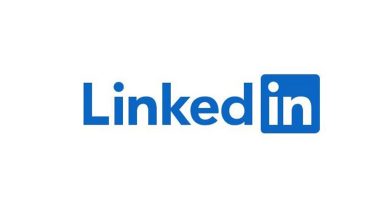The Best Personality Tests for Recruiters: Finding the Best Fit for Your Hiring Needs

Recruiting top talent is a critical aspect of any organization’s success, and it can be a challenging and time-consuming process. Finding and using the best personality tests are becoming increasingly popular in the recruitment process. They offer a reliable and objective way to assess a candidate’s personality traits. In this blog post, we’ll discuss the different types of tests and how recruiters can use them effectively to find the right candidates.
Choosing the Best Personality Test
There are many types of personality tests available, each with its unique approach to measuring personality traits. Here are some of the most common types of personality tests used in recruitment:
- The Big Five Personality Test: The Big Five model is one of the most widely used personality tests in recruitment. It assesses a candidate’s personality based on five key traits: openness, conscientiousness, extraversion, agreeableness, and neuroticism. This test is popular because it provides a comprehensive assessment of a candidate’s personality, and the results are easy to interpret.
- Myers-Briggs Type Indicator (MBTI): MBTI is a personality test that classifies individuals into one of 16 different personality types. It assesses a candidate’s personality based on four dichotomies: extraversion vs. introversion, sensing vs. intuition, thinking vs. feeling, and judging vs. perceiving. This test is popular because it provides a detailed description of a candidate’s personality type, which can be useful in understanding how they may fit into a particular role or team.
- DISC Assessment: The DISC assessment categorizes individuals into one of four behavioral styles: dominance, influence, steadiness, and conscientiousness. This test is popular because it provides insights into a candidate’s communication style and work preferences. Which can be useful in determining how they may perform in a particular role.
- Hogan Personality Inventory (HPI): The HPI is a personality test that measures a candidate’s personality traits based on seven primary scales. This test is popular because it provides a detailed analysis of a candidate’s personality traits. It can be useful in predicting their potential job performance.
It’s important to note that there are many other personality tests available, and recruiters should choose a test that best aligns with their organization’s values and goals.
Best Personality Tests for Recruitment
While there are many personality tests available, some have gained popularity in the recruitment industry due to their effectiveness in predicting job performance. Here are some of the most popular personality tests used in recruitment:
- The Big Five Personality Test: The Big Five is widely used in recruitment due to its comprehensive assessment of a candidate’s personality traits. The five dimensions of the test (openness, conscientiousness, extraversion, agreeableness, and neuroticism) provide a detailed understanding of how a candidate may perform in different work environments and situations.
- Myers-Briggs Type Indicator (MBTI): MBTI is a popular test in recruitment because it provides insights into how candidates process information, make decisions, and interact with others. It categorizes individuals into 16 different personality types, each with its strengths and weaknesses.
- Caliper Profile: The Caliper Profile is a personality test that measures a candidate’s personality traits, motivations, and potential for success in a particular role. It assesses a candidate’s strengths and weaknesses in areas such as problem-solving, communication, and leadership.
- DiSC Assessment: The DiSC Assessment is a popular personality test in recruitment because it provides insights into how candidates communicate and work with others. The assessment categorizes individuals into four behavioral styles (dominance, influence, steadiness, and conscientiousness) and provides insights into how candidates may perform in different team environments. It’s essential to note that while these tests are popular, they may not be suitable for all organizations or roles. Recruiters should carefully evaluate each test’s strengths and limitations before using them in the recruitment process.
How to Choose the Right Online Test?
Choosing the right personality test is crucial to ensure that it effectively measures the traits and characteristics that are important for success in a particular role. Here are some factors to consider when selecting a personality test for recruitment:
- Job Requirements: The personality test selected should align with the job requirements and the organization’s culture. For instance, if the role requires strong communication and teamwork skills, a test that measures communication and social skills, such as the DiSC Assessment, may be appropriate.
- Test Validity and Reliability: Validity and reliability are essential considerations when selecting a personality test. Validity refers to the degree to which a test accurately measures what it claims to measure, while reliability refers to the test’s consistency. Recruiters should select tests that have been scientifically validated and have high-reliability scores.
- Candidate Experience: The personality test should be user-friendly and not overly complex to ensure that candidates can easily complete it. Tests that are too lengthy or complex can cause candidates to become frustrated or fatigued, leading to inaccurate results.
- Cost and Time: Personality tests vary in cost and time requirements. Recruiters should select tests that are cost-effective and time-efficient while still providing reliable and valid results.
- Compliance: It’s essential to ensure that the best personality test you selected complies with legal and ethical standards. Some tests may be deemed discriminatory or biased against certain groups, which can lead to legal issues.
Overall, recruiters should carefully evaluate each test’s strengths and limitations and select the test that best aligns with the organization’s needs and goals. Additionally, it’s crucial to ensure that the test is administered ethically and consistently across all candidates.
Administering the Assessment Tests Effectively
Administering personality tests effectively is crucial to ensure accurate results and a positive candidate experience. Here are some tips to help recruiters administer personality tests effectively:
- Communicate with Candidates: Candidates should be informed about the purpose of the test, how it will be used, and how long it will take. Candidates should also be allowed to ask questions and express any concerns they may have.
- Provide Clear Instructions: Clear and concise instructions should be provided to candidates on how to complete the test. Candidates should also be informed of the time limits, scoring, and any other pertinent details.
- Ensure a Neutral Environment: Personality tests should be administered in a neutral environment, free from distractions or interruptions. Candidates should be encouraged to take the test in a quiet place where they can concentrate without interruption.
- Avoid Bias: Recruiters should ensure that they administer personality tests without bias. This includes avoiding leading questions, providing equal opportunities to all candidates, and ensuring that the test is free from cultural, gender, or other biases.
- Consider Timing: Personality tests should be administered at an appropriate time during the hiring process. For example, the test may be administered after the initial screening but before the interview stage.
- Ensure Confidentiality: Candidates’ test results should be kept confidential and only shared with relevant parties involved in the hiring process.
- Follow-Up with Candidates: It’s important to follow up with candidates after the test to provide feedback, answer any questions, and offer additional support if needed.
Overall, the use of the best personality tests effectively can help recruiters gain valuable insights into a candidate’s personality traits and characteristics. By following these tips, recruiters can ensure that the testing process is fair, unbiased, and informative.
Interpreting and Utilizing Test Results
- Look for Patterns: Personality tests provide a comprehensive view of a candidate’s traits and characteristics. Look for patterns in the results to gain a better understanding of the candidate’s strengths, weaknesses, and overall personality.
- Consider the Role Requirements: When interpreting personality test results, it’s important to consider the specific requirements of the role. Look for traits that align with the job requirements and consider how the candidate’s personality may impact their performance in the role.
- Combine with Other Assessment Methods: Personality tests should not be used as the sole determining factor in the recruitment process. They should be used in combination with other assessment methods, such as interviews, work samples, and references, to gain a holistic view of the candidate.
- Avoid Stereotyping: Personality tests should not be used to stereotype or make assumptions about candidates. Each candidate is unique and should be evaluated based on their traits and characteristics.
- Use Results as a Starting Point: Personality test results should be used as a starting point for further exploration and discussion with the candidate. It’s important to delve deeper into the results and ask the candidate to provide examples of how they have demonstrated specific traits or characteristics.
- Provide Feedback: Providing feedback to candidates on their use of the best personality test results can be a valuable part of the recruitment process. It can help candidates gain insight into their strengths and weaknesses and provide them with guidance on how to improve.
- Maintain Confidentiality: Personality test results should be kept confidential and only shared with relevant parties involved in the hiring process. Candidates should be informed of the results and how they will be used in the hiring decision.
The Role of Online Tests in Diversity and Inclusion
Personality tests can play an important role in promoting diversity and inclusion in the recruitment process. Here are some ways that personality tests can be used to promote diversity and inclusion:
- Identify Unconscious Bias: Personality tests can help identify unconscious bias in the recruitment process. By providing a standardized and objective assessment of a candidate’s traits and characteristics, personality tests can help mitigate the impact of unconscious bias on the hiring decision.
- Increase Objectivity: Personality tests can help increase objectivity in the recruitment process by providing a more standardized and consistent way to evaluate candidates. This can help ensure that all candidates are evaluated based on the same criteria, regardless of their background or demographic.
- Identify Diversity of Thought: Personality tests can help identify candidates with diverse perspectives and ways of thinking. This can help promote diversity of thought within the organization, which can lead to increased innovation and creativity.
- Ensure Fairness: Personality tests can help ensure fairness in the recruitment process by providing a consistent and objective way to evaluate candidates. This can help ensure that all candidates are evaluated based on their traits and characteristics, rather than their background or demographic.
- Facilitate Inclusive Hiring Practices: The use of the best Personality tests can facilitate inclusive hiring practices by providing a comprehensive view of a candidate’s traits and characteristics. This can help recruiters identify candidates with diverse backgrounds and experiences, and ensure that they are considered for the role.
Overall, personality tests can play an important role in promoting diversity and inclusion in the recruitment process. By identifying unconscious bias, increasing objectivity, identifying the diversity of thought, ensuring fairness, and facilitating inclusive hiring practices, personality tests can help organizations build a more diverse and inclusive workforce.
Personality tests can be a valuable tool for recruiters looking to quickly find candidates that fit their organization’s needs. With a wide range of personality tests available, it is important for recruiters to choose the right one for their specific needs and to administer the test effectively to ensure accurate results.
Some popular personality tests for recruitment include the Myers-Briggs Type Indicator, the Big Five Personality Traits, and the DISC assessment. Recruiters should consider factors such as cost, validity, reliability, and ease of use when selecting a personality test.
To administer personality tests effectively, recruiters should ensure that candidates understand the purpose of the test and provide a comfortable and quiet environment for them to take the test. It is also important to avoid bias and maintain confidentiality when interpreting and utilizing personality test results.
Personality tests can also play an important role in promoting diversity and inclusion in the recruitment process. By identifying unconscious bias, increasing objectivity, and facilitating inclusive hiring practices, personality tests can help organizations build a more diverse and inclusive workforce.
In conclusion, using the best personality tests can be a valuable tool for recruiters to quickly find candidates that fit their organization’s needs. By choosing the right personality test, administering it effectively, and utilizing the results appropriately, recruiters can make informed hiring decisions and build a strong and diverse workforce.





